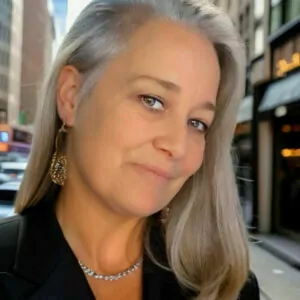Life Rebalanced Live 2025
Recordings and Transcripts Package
(These videos and transcripts are for personal use only and may not be redistributed.)
Beyond Medication: Exploring Alternative Treatments for Vestibular Migraine
Managing vestibular migraines often requires a holistic approach that goes beyond medication, focusing on lifestyle modifications and complementary therapies. Stress management, sleep hygiene, and identifying dietary triggers or adopting an anti-inflammatory diet can significantly reduce symptoms. Supplements like magnesium and riboflavin may provide additional support. Exercise and movement therapies, such as vestibular rehabilitation therapy (VRT), improve balance and coordination, while practices like yoga, acupuncture, and cognitive behavioral therapy (CBT) help address physical and mental well-being. Tools like vagus nerve stimulation and ergonomic adjustments offer innovative options for symptom relief. Together, these strategies empower patients to take an active role in managing their condition.
Thriving in the Real World: Strategies for Navigating Visually Overwhelming Environments with Vestibular Dysfunction
Navigating visually overwhelming environments can be challenging for individuals with vestibular dysfunction due to sensory mismatch, where the brain struggles to reconcile visual, vestibular, and proprioceptive inputs. Common triggers include crowded spaces, scrolling screens, and fluorescent lighting, often linked to diagnoses like vestibular migraine or persistent postural-perceptual dizziness (PPPD). Practical strategies include using tinted glasses, pacing activities, and pre-planning for events like driving, traveling, or social gatherings. Mind-body techniques, such as deep breathing, grounding exercises, and mindful focus, can help reduce symptoms in the moment, empowering patients to confidently manage these challenges.
The Power of Neuroplasticity in Vestibular Care & Treatment
Neuroplasticity—the brain’s ability to adapt and reorganize in response to changes—plays a critical role in vestibular care, enabling the recovery of balance and coordination after injury or dysfunction. By leveraging the mind-body connection, treatment focuses on exercises that promote habituation (reducing sensitivity to dizziness) or substitution (developing alternative pathways for balance). Repetition and consistency are essential for reinforcing these adaptations, while early intervention maximizes recovery potential, particularly in acute cases where the brain’s adaptability is highest. For chronic conditions, tailored strategies help manage symptoms and improve quality of life over time.
Addressing Root Causes for Improved Vestibular Health and Wellness
Effective vestibular care goes beyond masking symptoms with medication, focusing instead on identifying and addressing root causes of issues like vertigo, which is a symptom rather than a diagnosis. Potential underlying causes include dietary imbalances, hormonal shifts, mental health challenges, or environmental factors such as toxins or allergens. A multidisciplinary approach—combining medical treatment with holistic strategies like nutritional adjustments, stress management, and lifestyle modifications—can lead to more sustainable wellness. Empowering patients through self-advocacy and education encourages active participation in their care, promoting long-term vestibular health and improved quality of life.
Empowering Vestibular Patients through Technology: Telehealth, Innovations, and Accessibility
Telehealth has revolutionized vestibular care by providing remote access to qualified providers through digital platforms, eliminating the need for commuting, especially for those with mobility or balance issues. It enhances accessibility, offering virtual consultations, symptom tracking, and personalized care plans. Apps and online tools empower patients by facilitating symptom management, delivering educational resources, and supporting self-care routines. By leveraging technology, patients can access resources, connect with specialists, and achieve better outcomes, even in challenging circumstances.
Hosts
Drs. Abbie Ross and Liz Fuemmeler facilitate the "fireside chat" discussions with our healthcare experts, and vestibular patients, Heather Davies and Hollie Smith, moderate the patient panels.

Liz Fuemmeler, AuD, CCC/A, FAAA
Professional Hearing Center, Interacoustics

Abbie Ross, PT, DPT, NCS
Balancing Act Rehabilitation

Heather Davies
Meniere's Disease Patient

Hollie Smith
Meniere's Disease, Vestibular Migraine & SSCD Patient
Expert Speakers

Trupti Gokani, MD
Neurologist

Bryce Applebaum, OD
Optometrist

Amy Moore, DPT
Physical Therapist

Anand Bery, MD, FRCPC
Neurologist, Otoneurologist

Daniel Demian, DC, DACNB
Chiropractic Neurologist

Maria Machala, MS, NP
Nurse Practitioner

Kathleen Stross, MS, DPT, CHC
Physical Therapist

Dara Meldrum, PhD, MISCP, MSc
Physical Therapist

Sarah Conover, PT, MHS, CHC, C
Physical Therapist
Patient Panelists

Alicia Wolf
Vestibular Migraine

Sophie Krupp
Vestibular Migraine

Sarah DeSantis
Vestibular Migraine

Jennifer Crespo
Vestibular Neuritis, Vestibular Migraine

Katrien Goethals
Vestibular Neuritis, Vestibular Migraine, PPPD

Marissa Aldrete
Vestibular Migraine

Julia Savoia
Ménière's disease

Kristy Carabello
Ménière's disease, Vestibular Migraine

Shruti Shivaramakrishnan
Vestibular Migraine
Previous Year's Recordings
If you missed VeDA's previous Virtual Conferences you can still watch the sessions by purchasing the recordings. Your purchase gets you lifetime access to the full conference to watch at your leisure and rewatch as many times as you want while providing support for the free articles and resources that are available from VeDA to vestibular patients all over the world.
Thank you to the conference sponsors


